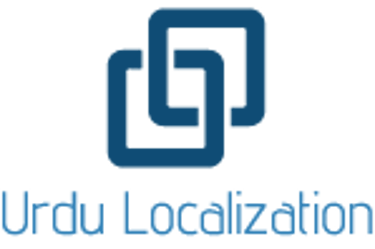
Why Urdu Deserves a Fair Place in the Digital World
2 min read

The localization industry is expanding rapidly as companies compete for global audiences. But not all languages enjoy equal visibility. English, Chinese, Spanish, and French dominate digital platforms, while languages like Urdu remain underrepresented. With more than 230 million speakers worldwide, Urdu deserves a stronger digital presence, yet bias and neglect often prevent it from receiving fair localization support. Addressing this inequity is not only ethical but also strategic for businesses aiming to expand inclusively.
Unequal Access in Technology
From mobile apps to e-commerce stores, many platforms still lack proper Urdu localization. This exclusion forces millions of users to rely on English interfaces, which can alienate limited English speakers. The lack of Urdu options is not because of low demand but because of industry bias, where global companies prioritize dominant languages. This inequity limits access and hinders digital inclusivity.
The Role of Urdu Localizers and Translators
Professional Urdu translators and localizers play a vital role in bridging this gap. By adapting not only the words but also the user experience, they ensure Urdu speakers can engage with technology confidently. This requires handling challenges such as right-to-left (RTL) design, double-meaning words, and culturally sensitive expressions. Localizers are advocates for inclusion, ensuring no user is left behind.
Fair Opportunities for Urdu in the Digital Economy
Equity in localization means giving Urdu the same attention as major languages. Companies that localize into Urdu tap into massive markets across South Asia and diaspora communities. From mobile payments to healthcare apps, offering Urdu options is both socially responsible and commercially smart. Ignoring this language not only limits reach but also risks alienating millions of potential customers.
Breaking Bias in AI and Machine Tools
AI-driven translation tools often perform poorly with Urdu because training data is limited compared to English or Spanish. This technological bias leads to lower-quality output, reinforcing the false idea that Urdu is “too complex.” Investing in Urdu-specific resources, combined with professional post-editing, ensures that AI tools work fairly across languages. Without this commitment, Urdu speakers remain excluded from advancements shaping the digital future.
Localization as a Tool for Inclusion
Localization is more than a business strategy—it is a commitment to equity. By offering platforms in Urdu, companies empower users to participate fully in the digital economy. Whether it’s a government portal, a banking app, or a streaming service, making Urdu available sends a powerful message of respect and inclusion.
Equity and inclusion in localization are not optional; they are essential. Urdu speakers, with their cultural richness and global presence, deserve equal access to technology and communication. By prioritizing Urdu translation and localization, businesses not only expand their reach but also contribute to a more inclusive digital world where no voice is ignored.
